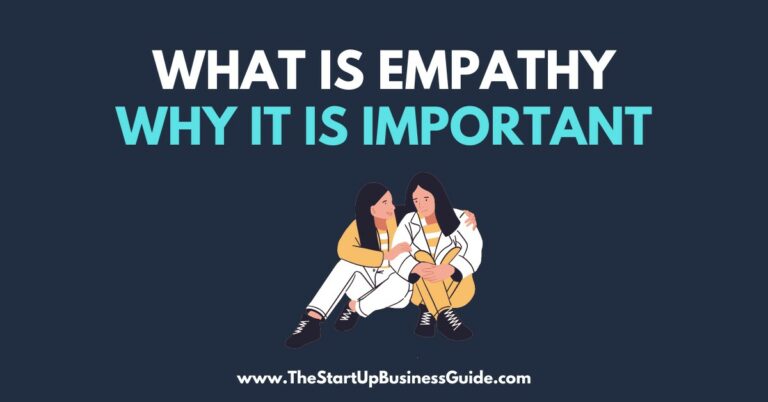How to Apologize Effectively and Sincerely

When we make mistakes, it’s important to take responsibility and apologize.
But not all apologies are created equal.
A sincere apology can go a long way in restoring trust and healing relationships, while an insincere apology can do more harm than good.
In this article, we’ll explore the importance of a sincere apology, the steps to making an effective apology, and how to apologize in different situations.
Understanding the importance of a sincere apology
An apology is not just about saying “I’m sorry.”
A sincere apology acknowledges the mistake, takes responsibility for it, expresses remorse, and makes amends.
A non-apology, on the other hand, may be phrased as an apology, but it doesn’t take responsibility or express remorse.
For example, “I’m sorry if you were offended” is a non-apology because it doesn’t take responsibility for the offending behavior.
Not apologizing sincerely can have negative consequences.
It can damage relationships, create resentment, and even lead to legal action.
On the other hand, a sincere apology can go a long way in restoring trust and healing relationships.
Steps to making an effective apology
When you make a mistake, it’s important to take responsibility for your actions.
This means admitting that you were wrong and acknowledging the impact of your actions on others.
Expressing remorse is another key component of an effective apology. This means feeling and showing genuine remorse for your actions.
Saying “I’m sorry” is not enough; you need to show that you understand how your actions affected others and that you regret your behavior.
Making amends is another important step in an apology.
This means taking action to make things right and prevent similar mistakes in the future.
This can include offering a solution, making restitution, or changing behavior.
The final step in making an effective apology is asking for forgiveness.
This means acknowledging that what you did was wrong and asking for the other person’s forgiveness.
How to apologize in different situations
Apologizing in a personal relationship is different than apologizing in a professional setting.
In a personal relationship, it’s important to be open and honest about your feelings.
This means being willing to listen to the other person’s feelings and taking responsibility for your actions.
Apologizing in a professional setting requires a different approach. It’s important to be professional and take responsibility for your actions.
This means acknowledging the mistake, expressing remorse, and making amends.
If the mistake affects the company, it’s important to take steps to prevent similar mistakes from happening in the future.
Apologizing in writing, such as in an email or letter, requires a different approach than apologizing in person or over the phone.
When apologizing in writing, it’s important to be clear, concise, and direct. Use a neutral tone and avoid being defensive.
How to move forward after an apology
Making an apology is just the first step in restoring trust and healing relationships. It’s important to follow through on any promises made in the apology.
This means taking action to make things right and prevent similar mistakes in the future.
Rebuilding trust takes time and effort. It’s important to be patient and understanding.
Listen to the other person’s feelings and be willing to make changes to regain their trust.
Preventing similar mistakes in the future is important.
This can include changes in behavior, training, or implementing new policies.
FAQs on Apologizing
Q. What is the best way to apologize for a mistake?
A: A sincere and genuine apology, where you take responsibility for your actions and express remorse, is the best way to apologize for a mistake.
Q. How do I apologize for a mistake I made at work?
A: Acknowledge the mistake, take responsibility for it, explain the steps you will take to prevent it from happening again, and express your remorse to those affected by the mistake.
Q. How do I apologize for something I said that hurt someone?
A: Express remorse for the hurtful words and the impact they had on the person. Acknowledge that what you said was wrong and take responsibility for your actions.
Make a genuine effort to understand their perspective and offer to make amends.
Q. How do I apologize for something I did that hurt someone?
A: Acknowledge the harm you caused and take responsibility for your actions.
Express remorse and apologize for the hurt you caused. Make a genuine effort to understand the other person’s perspective and offer to make amends.
Q. How do I apologize for being late?
A: Acknowledge that you were late and apologize for the inconvenience it caused.
Explain the reason for your lateness and offer to make it up to the person in some way.
Q. How do I apologize for canceling plans last minute?
A: Acknowledge that canceling last minute is not acceptable and express remorse for any inconvenience caused.
Explain the reason for canceling and offer to make it up to the person in some way.
Q. How do I apologize for a major mistake?
A: Acknowledge the mistake, take responsibility for it, and express remorse.
Explain the steps you will take to prevent it from happening again.
Offer to make amends, and be willing to accept any consequences of your actions.
Q. How do I apologize to a friend?
A: Acknowledge the mistake and express remorse. Explain the reason for your actions and offer to make amends.
Show that you understand the impact of your actions and are willing to work on rebuilding the friendship.
Q. How do I apologize to a loved one?
A: Acknowledge the mistake and express remorse. Explain the reason for your actions and offer to make amends.
Show that you understand the impact of your actions and are willing to work on rebuilding the relationship.
Q. How do I apologize when I don’t know what I did wrong?
A: Ask the person to explain the situation and listen to them without becoming defensive.
Acknowledge their feelings and apologize for any hurt or inconvenience caused, even if you are not sure of the specific actions that led to the situation.
Conclusion
Apologizing effectively and sincerely is important in personal and professional relationships.
A sincere apology acknowledges the mistake, takes responsibility, expresses remorse, makes amends and ask for forgiveness.
An effective apology requires different approach in different situations, such as in personal relationships, professional settings, written communication, and in-person or over-the-phone conversations.
It’s also important to remember that apologizing is just the first step.
Following through on promises, rebuilding trust, and preventing similar mistakes in the future are all crucial in moving forward after an apology.
Practicing the steps outlined in this post can help improve your apology skills and strengthen your relationships.
If you’re looking for more resources on apologizing, there are many books and articles available that can provide additional guidance.
Remember, effective communication and being sincere can help heal relationships and build trust.






